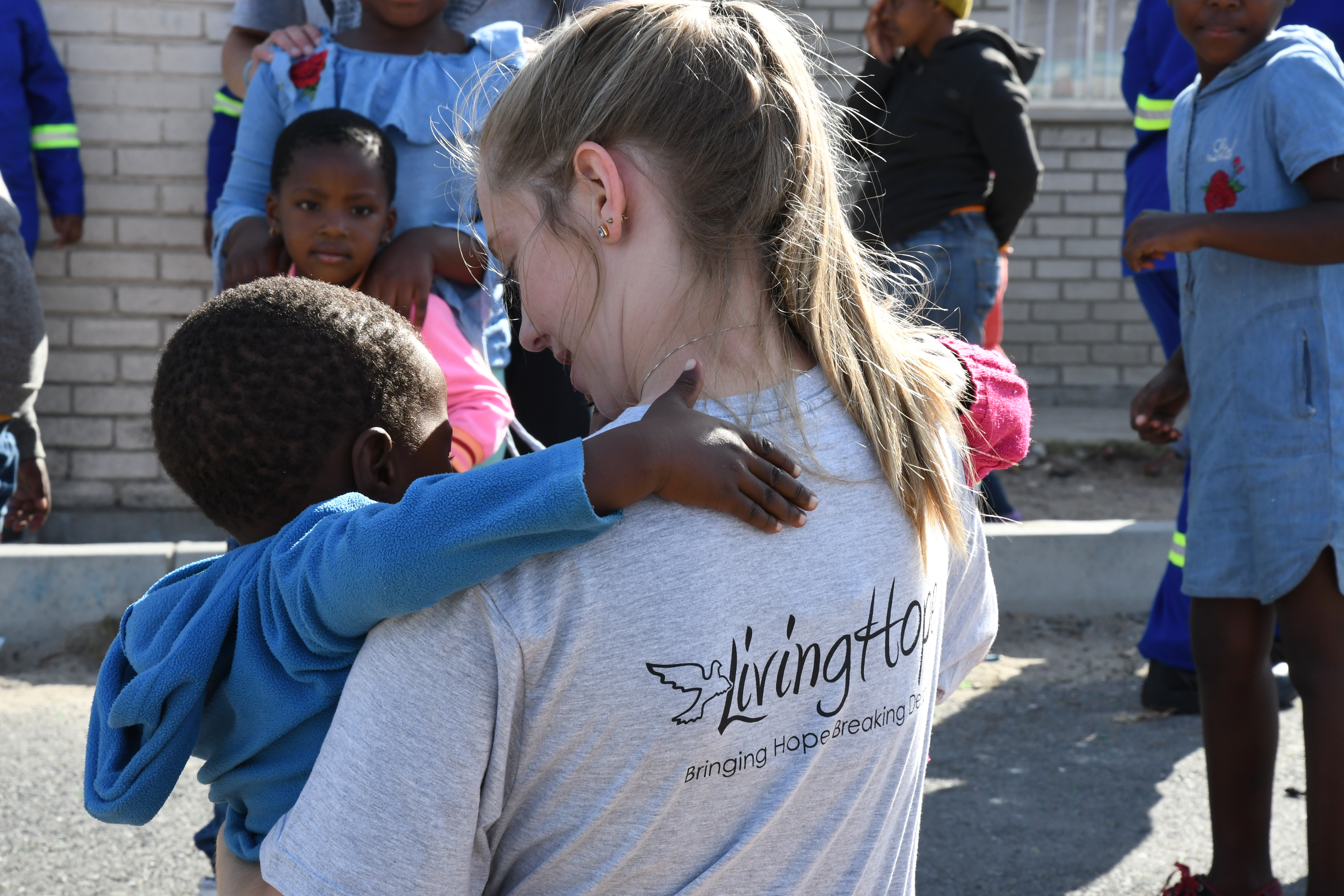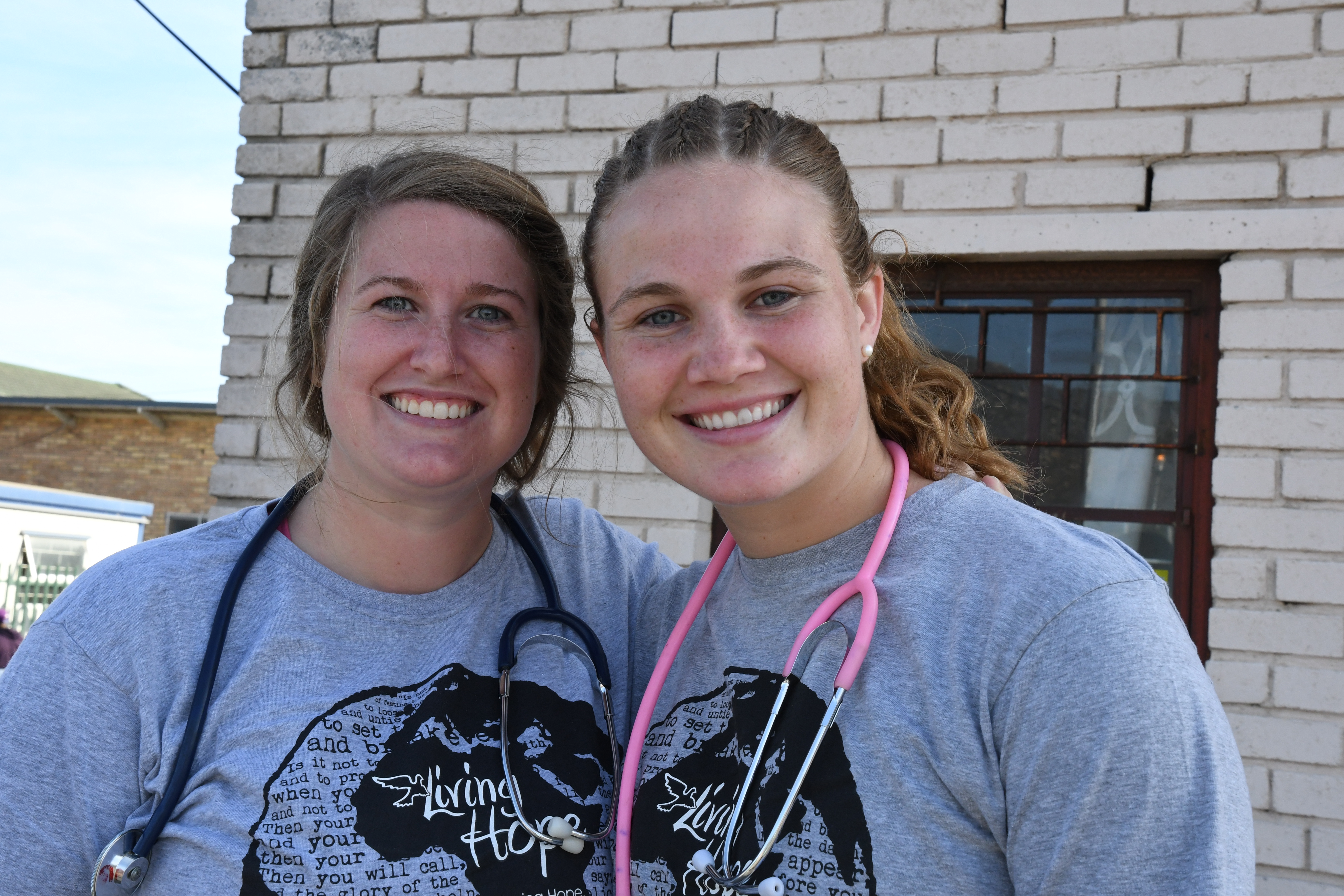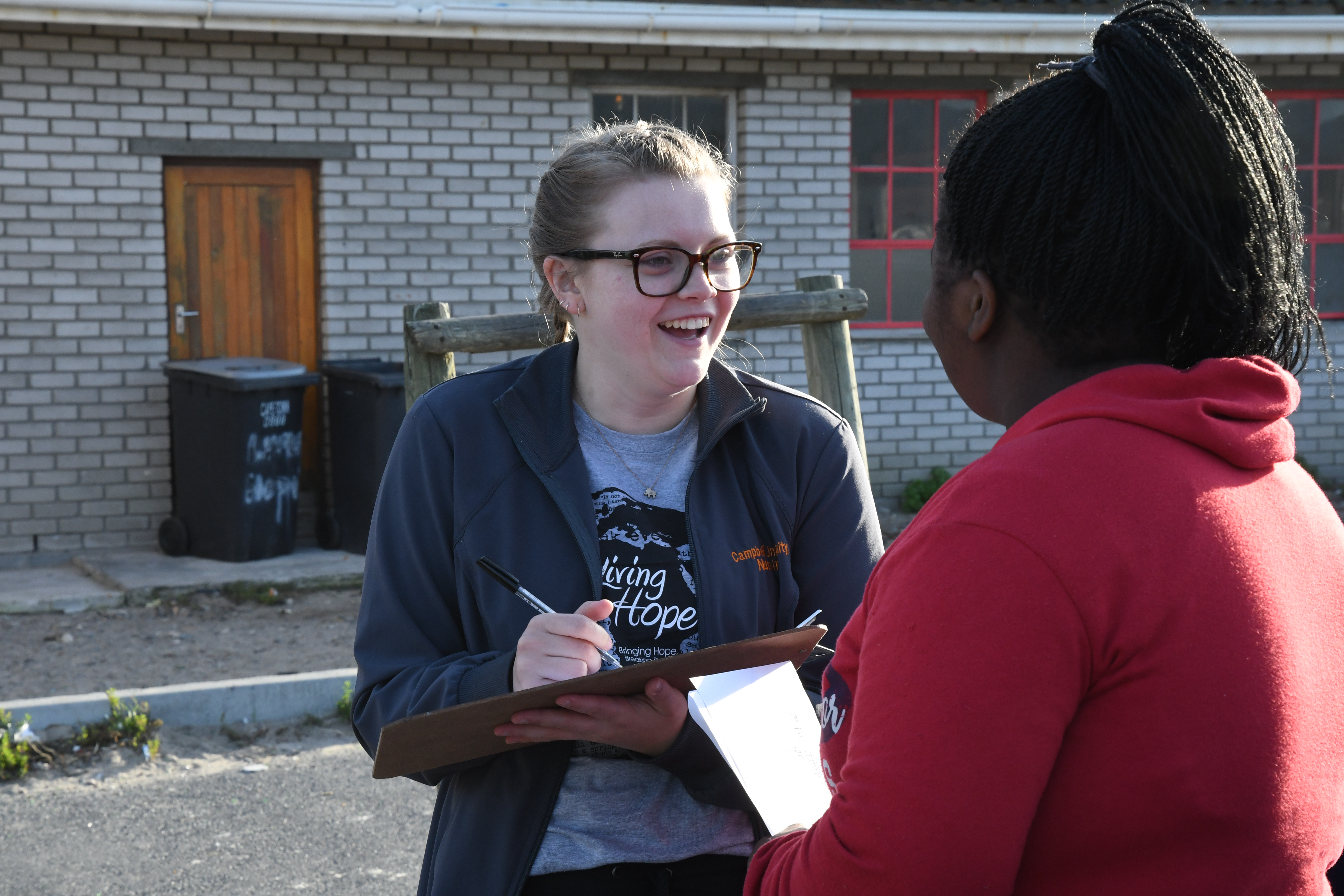Living Hope Part 4 | A typical (wonderful) day in South Africa

By Kate Stoneburner | Part 1 | Part 2 | Part 3 | Part 4 | Part 5
Tomorrow is our last work day and I don’t know exactly where the time went. To be fair, I’m still having a hard time remembering what day of the week it is even after four days on South Africa time. So this morning, I took inventory. Here’s how a typical day rolled by on Living Hope Mission Trip: Campbell Edition.

- 6:00 a.m. Wake up before the Holy Spirit in time to read the daily devotion and eat breakfast.
- 7:30 a.m. Head out for one of Living Hope’s five community bases. Hold on to our seats for dear life as our van driver, Fransi, pulls total power moves in the face of literal oncoming vehicles. There’s only one rule on the roads of the townships — there are no rules.
- 8:00 a.m. Devotions time with Living Hope staff. We sit in a circle over instant coffee and rooibus tea and listen to each community leader read from the Bible. Sometimes there are questions, sometimes there is singing, all the time there’s prayer.
- 9:00 a.m. Hop out of the van and set up our stations for blood pressure and blood sugar tests, TB screening and handwashing. This could happen in a parking lot, public square or dirt clearing depending on the community we’re in. Improvisation is key.
- 9:15 a.m. Break the ice with all of the kids who come out of the woodwork to check out the newcomers. This usually involves tag, soccer, dancing and dangerously inept hair-braiding from some curious future salon-owners.
- 9:30 a.m. Outreach time. The health care crew keep the line of “patients” moving, the athletes keep the kids entertained, the handwashers scrub until their fingers are pruny and Caitlyn and I take approximately 500 photos trying to capture what it all looks like.
- 12 p.m. LUNCH, praise the Lord. We eat very well on this trip. Our staples are chicken, zucchini and bread and we have zero complaints about it.
 1 p.m. We meet back up with Living Hope staff and another missions team helping out this week — a group of students from California Baptist University — to set up the afternoon program we’ve been taking on the road for Child Protection Week.
1 p.m. We meet back up with Living Hope staff and another missions team helping out this week — a group of students from California Baptist University — to set up the afternoon program we’ve been taking on the road for Child Protection Week. - 2 p.m. Pamphlet drive. Teams form little packs and traverse the neighborhoods, handing out information about Living Hope’s offerings and telling everyone we see that there will be an event for the children today in the parking lot/square/clearing at 3 p.m. A day-of, word-of-mouth invite would be absolutely ludicrous in the U.S., where kids are usually booked solid with extracurriculars after school. Here, we usually have a following of 50 kids or more by the time we head back to home base to start the program.
- 3 p.m. Chaos, but we call it “free play.” We force the kids (upwards of 300 of them) into wristbands and join them in impromptu dance parties and various playground games. It is 10% overwhelming and 90% an absolute blast.
- 3:30 p.m. We start the program. There are circle games and chants, face painting stations, praise and worship time with dances led by Living Hope and a skit about human trafficking. And if you think kids’ simple faith is precious and adorable, you have to hear this group saying the Our Father in unison.
- 5 p.m. Kids are gone. Everyone breathes. We sit in a huge circle and debrief — what was our favorite part and how the day could have gone better? The Americans jump back in their respective vans and head home for dinner. We spend our commute torturing Fransi with our renditions of “Ol’ Red” and “Sweet Home Alabama” and Toto’s “Africa.”
- 7 p.m. Dinner and devotions. This chunk of the day is prime time for becoming better friends. We do our own reflecting during devotions, and share highs and lows from the day. Not one night has passed when I haven’t laughed until my stomach hurt at some point. (Ask Rachel about her two front teeth sometime.)
- 9 p.m. For those of us who are taking summer courses (or blogging about South Africa), this is catch-up time. The homework crew can be found in our hang-out space from 9 p.m. until as late as 2 a.m. Yikes.
- (?) p.m. Shower and pass out. The water advisory here in Cape Town limits our showers to two minutes. This is actually a blessing because believe it or not, the hot water does not last long with 13 girls sharing one water heater.
- 6:00 a.m. Start over. Repeat for 5 days.

Lack of sleep aside, we’ve been very comfortable this week. Of course, there are personal challenges for each of one of us. As a woman who’s never been described as “good with kids” (the first and last time I babysat, I locked myself out on the roof in the snow), the high-energy task of playing with them all day can be daunting. For some, the least-fun part is sitting in the backseat of the van, always on the move, bouncing between two communities every day. And the instant coffee just isn’t cutting it for a few of the caffeine addicts among us. All minor inconveniences that are completely forgotten by the first high-five you exchange with the kids at outreach.
I wish that I could show off some of the children we get to work with. Like all kids, they are incredible in action, whether it’s jumping rope at the speed of light or flaunting their dance moves. South Africa’s Protection of Personal Information (PoPI) act means it’s against the law to post photos that show any citizen’s uniquely recognizable features without a waiver, and we simply don’t have time or manpower for all the paperwork. I hate saying no to so many faces, especially when so many are so intrigued by an actual non-iPhone camera. But it’s good to be forced to get creative with how we document our time here. PoPI is just another unexpected challenge that’s made this trip so extraordinary.

I have one more list to finish summing up the day-to-day in South Africa. Each community has a unique culture and vibe, but there are certain universal takeaways that we’re bringing home from Red Hill, Ocean View, Capricorn and Masiphumelele:
God uses REALLY cool people to do his work. In case you’ve never met one in real life, missionaries are not ruler-beating sticks in the mud. We’d happily move in and spend all day every day with these people.
Being below the poverty line doesn’t make you miserable. The people who live in these villages face tons of challenges, but also have fewer distractions fighting for their eyeballs. They have a huge capacity for joy and focus on faith and family.
It’s a waste of time to envy someone else’s strengths. We only have four nursing students, but every single woman is invested in the health and wellness, physical and spriitual, of South Africans. I know they’ll use their individual gifts to continue their ministries when we get home.
Getting nationals involved in your ministry is vital for sustainability. We’re proud to be Americans and so happy to be welcome in South Africa, but kids need role models and Christ followers who look like them, talk like them and love their communities.
We don’t have complete control. Over anything. And that’s why finding your identity in anything other than Christ — whether it’s your occupation, your social status or even your own family —will never be enough to satisfy you. There’s nothing else like him. Nothing even comes close.

